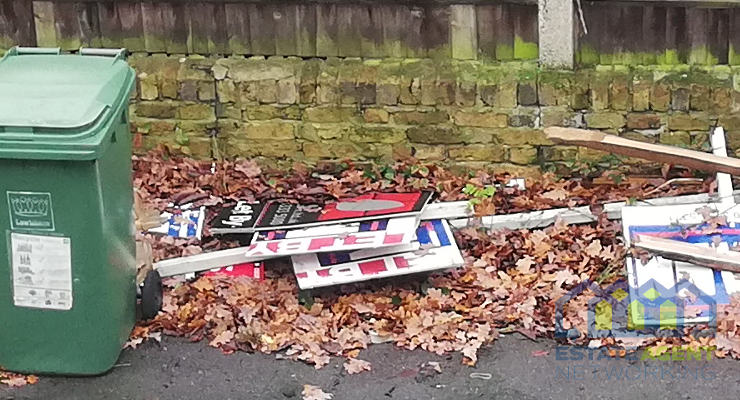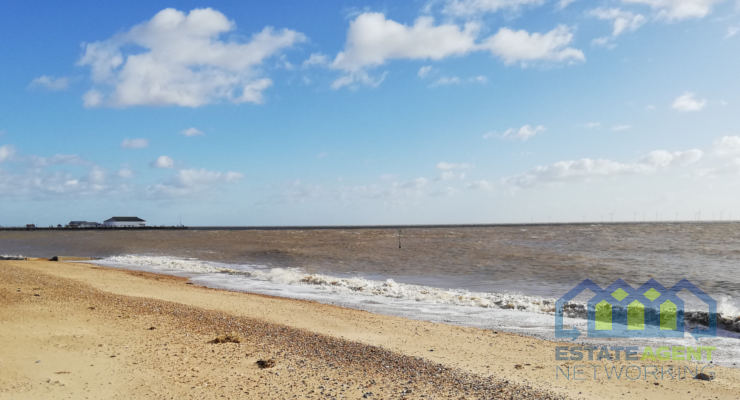Russell Quirk: Up In Smoke – This Is Where Estate Agency Is Heading
Ever the man to share exactly what he thinks, Russell shares with us his thoughts on Estate Agency and where it is heading:
The die of inevitability is cast. 2016 bore witness to further growth in ‘new’ estate agency and cemented it as a movement that is not going away. Market share is growing as are the revenues of (most of) this disruptive sector’s participants.
In the last couple of years the ‘online vs high street’ battle has been whipped up consistently by a) the mainstream media in its usual fascination with anything new and disruptive; b) the trade press who revel in the forum comments that any such mention guarantees them from the incumbency; and c) those at the edge of the property industry that are a little late to the table and include, for instance, investment banks that now see a big opportunity to ride the wave of IPO derived fees.
So, it’s been very much a ‘them and us’ dynamic. In response I have spent the last year or more extolling that it is to miss the point to continue to wonder ‘which one will prevail?’. In other words, the future is not about ‘them and us’ at all but, rather, is about how to make selling a property better for the consumer. That may well be a combination of the best of both models and, quite obviously as far as I see it, the companies that achieve the delivering of better estate agency through genuinely superior customer service, top selling performance and the most customer empowering technology AND at a value for money fee, will prevail.
I was first arguing the similarities of early stage estate agency disruption vs the travel industry, insurance sector and recruitment space back in 2010. Since then we’ve seen the rise of FinTech, FoodTech, EdTech, BioTech and HealthTech. A huge growth in online grocery shopping and the eradication of CDs in favour of the likes of Spotify (with a nostalgic upward squeak from vinyl sales notwithstanding). Netflix and Amazon Prime and their superb, cheap, on demand streaming, are going to kill regular TV. Digital display advertising, the original print disruptor, has already been disrupted by Google Adwords and which will in turn be wrong-footed by ‘Paid Social’.
The world is a changing and it’s hard to keep up with all the progress on progress.
In industry development terms, property can be likened to Stephenson’s Rocket in comparison to, say, media. If music were estate agency we would still be listening to wind up gramophones. Instead we are streaming music on demand (recommended to us by an algorithm as likely to be the tracks that we most probably want to listen to) to our iPhones, our cars, watches and our voice activated Echo devices. And, almost free. What we used to pay for one album we now pay for unlimited content each month.
In the disruption mele of the last couple of decades, old-world companies famously shunned progress and, indeed, ignored what the consumer wanted. The casualty list is positively Somme like with the corporate gravestones including the might of Kodak; Blockbuster; Comet; Woolworths; Jessups; and Borders. Companies saved from the brink (for now) number HMV, Clinton Cards, Nokia and Blackberry. None of them saw it coming but all of them should have seen it coming given that the adoption curve of new business models takes around a decade to ‘tip’ (Uber was launched 8 years ago. Twitter is 11 years old. Just Eat was established 16 years ago. Amazon is now positively ancient and first saw light in 1994).
Like retail and in fact every other vertical, it’s natural for the traditionalists to see online and eCommerce as a threat to their businesses. That ‘them and us’ thing again. Incumbents always fight progress because they think that it will go away and they hope that the familiar routine of the old world will prevail because it suits their inertia. But what we’ve seen from other industries, especially ‘people businesses’, is a more considered approach.
Multi-channel is the thing. A blend of online and bricks and mortar, technology and people. John Lewis do this really well. And Amazon will crush it with a combination of goods that they deliver based on what they evaluate you need rather than what you actually order but combined with Amazon Go stores that you visit but that have no check-outs.
It is a misnomer to advance an argument in the estate agency industry that contends that one model is better than another and that ‘one will win’. The fact is, bits of both are the way that the industry will go.
But the problem here for the incumbency is not just that they do not understand the online estate agency model and its nuances and facets. The problem is they think that they actually do understand it. For the ‘new’ approach is not just about lower fees. Or even just about automation and proprietary platform technology that allows greater control for the customer and lower costs all round. It is also about a specific culture that promotes a genuine, positive attitude toward customers but also a bespoke marketing strategy that is entirely different to the 20th century methods of the bricks and mortar guys. And then there’s the senior team, a team that has to be uniquely qualified across diverse disciplines to put all the ingredients together and to execute. Many that underestimated these requirements have fallen by the wayside, for example Spicerhaart’s iSold project and soon, I wager, Connells’ ‘Hatched’ initiative will falter as will Countrywide’s very costly (internally in that the platform cost £6m alone) ‘Flexi’ proposition which has gained barely any traction to date.
The incumbents may not accept it yet but they need to buy or invest in the disruptors to help them future proof their businesses by acquiring their savvy, their very DNA. But they’ll have to work out which online/hybrid brands are worth anything from the points of view of technology, marketing, team and culture first. Simply, if the estate agency establishment does not grit its teeth and buy or invest in the right disruptive player, they have little chance of surviving and hence we see a haemorrhaging of share price from Countrywide, Foxtons and others over the past 12 months given the City’s belief that they are substantially behind that curve. Or not even in the same geometrical place at all.
At the same time, the online/hybrid space will consolidate through mergers and failure. Failure not because the model isn’t worthy but because some are executing very, very poorly and wasting investors’ cash and which will not be replenished. A bit like some of the traditional agents too, funnily enough.
Ironically, the disruptors may like to think about benefitting from the incumbents’ balance sheets just as the incumbents will need to absorb the disruptors for their know-how.
There are not many examples of industries that have seen such strategic light in time but one that stands out as an illustration of my point is good old fashioned tobacco that, first, sat on the sidelines watching the growth in eCigarette usage and then, from 2012, pounced upon the upstarts even though they had been considered the incumbency’s biggest threat since the Surgeon General. Now, all of the world’s biggest brands have invested heavily in their inevitable future by buying or taking stakes in new, disruptive eCig entities. And just like oil companies are spending billions of dollars acquiring renewable energy tech. Or car companies like Mercedes Benz suddenly rushing to buy understanding in driverless cars where Google pioneered that thinking a good few years prior. Actually, the examples are now becoming more plentiful then they were as the lessons of innovation history and adoption curve predictability become harder learned.
The future of estate agency is the here and now. Some just can’t (or won’t) see that yet. Old meets new, new meets old. Such a combination is as obvious to me as it was to the few, traditional businesses that did see it coming but they are always the clever minority.
2017 may just be the year that we see radical, impressive acquisition activity by the mainstream property agencies. Or, like the smokers that BAT and Philip Morris are leaving behind, they will surely die.
Thank you for sharing this blog to Russell Quirk of Emoov.









